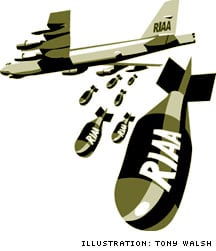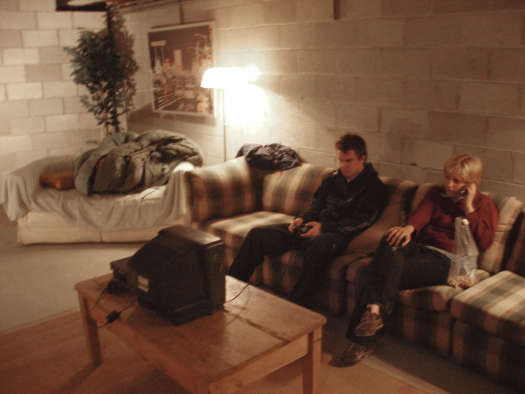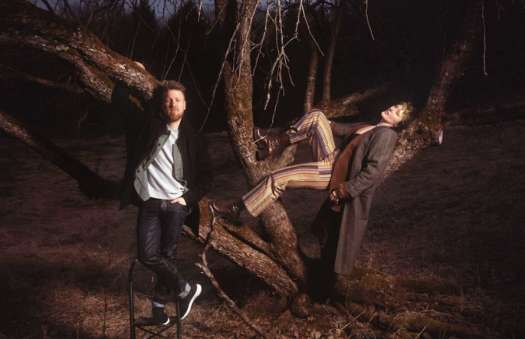The next stage of the battle being waged by the Recording Industry Association of America (RIAA) over peer-to-peer (P2P) file sharing networks like Grokster, Kazaa and Morpheus has begun the RIAA is gathering evidence to prosecute individual users for copyright infringement. But this war is far from over; public interest groups, software companies and users are making a rearguard advance in defence of file-sharing.
"It is an obvious attempt to intimidate people off of file-sharing programs," says Bill Evans, President and founder of Boycott-RIAA, an affiliation of self-professed "music lovers" who believe the RIAA over-extends unfair copyright laws. "I think the actions of the RIAA will further alienate music consumers, if that is possible. We've heard from people who don't file share at all, that feel they are being treated as criminals."
Evans is urging alienated music fans to get involved in localised flyer distribution campaigns across the U.S., scheduled to take place August 2, where Boycott-RIAA "street teams" will stage symbolic CD burnings "in the Boston Tea Party vein."
The U.S. Congress is one current target: Evans, along with P2P networks and public interest groups like the Electric Frontier Foundation, are pushing for public hearings on the P2P controversy.
"The sick think is, we would love to pay [copy]rights' owners," says Grokster President Wayne Rosso. "But it's one of those things where we say, please let us pay you,' and they won't take our money."
The RIAA plans to launch thousands of individual lawsuits in the U.S. on behalf of its member companies a second offensive after an April court ruling that stated the networks themselves could not be held accountable for instances of copyright infringement by individuals.
According to RIAA spokesperson Jonathan Lamy, "[The RIAA] are the ones bringing action to something virtually everyone in the music community is supportive of." He added that the P2P users subpoenaed will be those who distribute "significant" amounts of copyrighted music.
Grokster's Rosso is responding by forming a lobby group specifically geared to targeting Congress. "I assure you we will be organising the users," he says. "We want to mobilise them."
"It is an obvious attempt to intimidate people off of file-sharing programs," says Bill Evans, President and founder of Boycott-RIAA, an affiliation of self-professed "music lovers" who believe the RIAA over-extends unfair copyright laws. "I think the actions of the RIAA will further alienate music consumers, if that is possible. We've heard from people who don't file share at all, that feel they are being treated as criminals."
Evans is urging alienated music fans to get involved in localised flyer distribution campaigns across the U.S., scheduled to take place August 2, where Boycott-RIAA "street teams" will stage symbolic CD burnings "in the Boston Tea Party vein."
The U.S. Congress is one current target: Evans, along with P2P networks and public interest groups like the Electric Frontier Foundation, are pushing for public hearings on the P2P controversy.
"The sick think is, we would love to pay [copy]rights' owners," says Grokster President Wayne Rosso. "But it's one of those things where we say, please let us pay you,' and they won't take our money."
The RIAA plans to launch thousands of individual lawsuits in the U.S. on behalf of its member companies a second offensive after an April court ruling that stated the networks themselves could not be held accountable for instances of copyright infringement by individuals.
According to RIAA spokesperson Jonathan Lamy, "[The RIAA] are the ones bringing action to something virtually everyone in the music community is supportive of." He added that the P2P users subpoenaed will be those who distribute "significant" amounts of copyrighted music.
Grokster's Rosso is responding by forming a lobby group specifically geared to targeting Congress. "I assure you we will be organising the users," he says. "We want to mobilise them."




